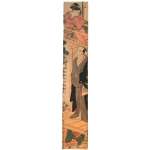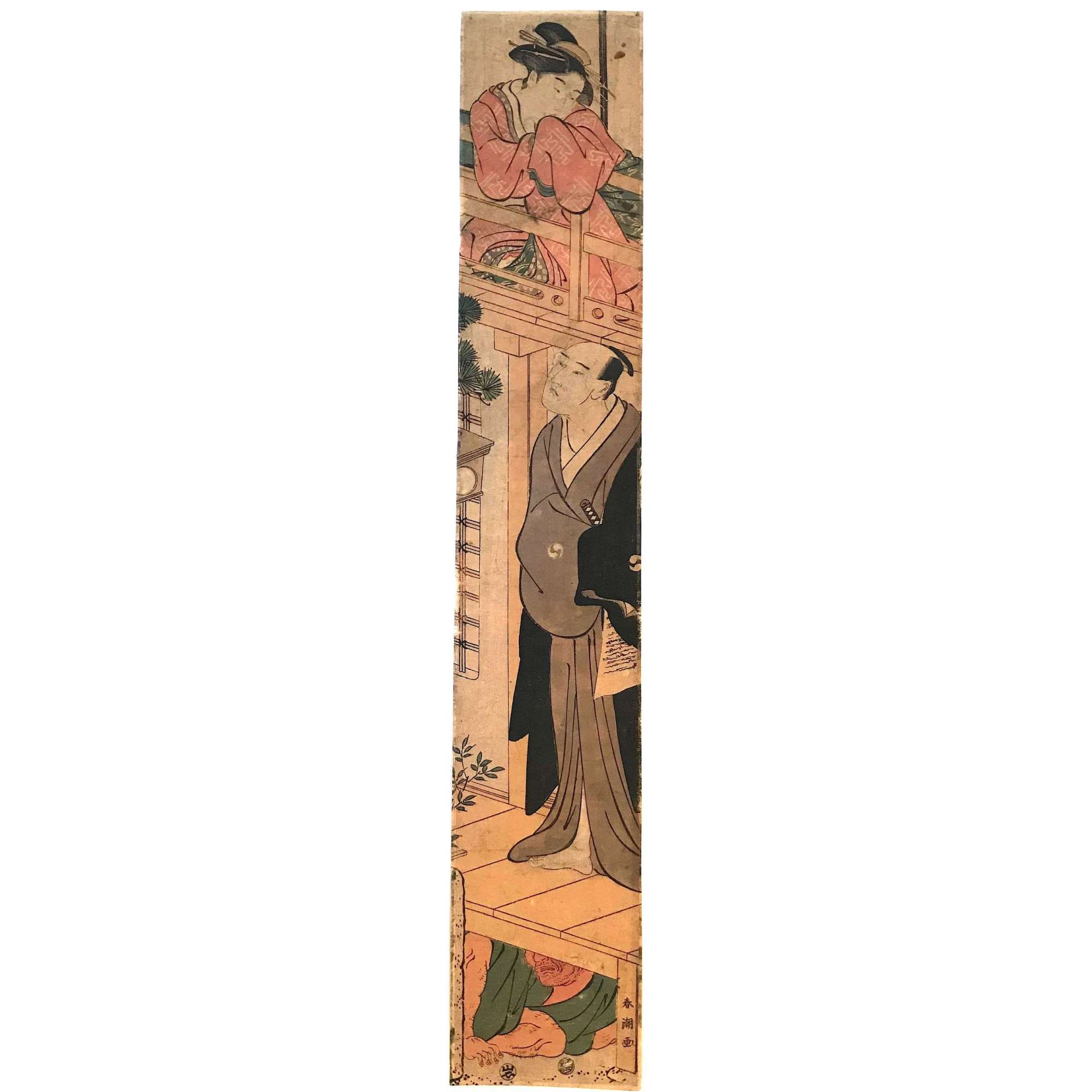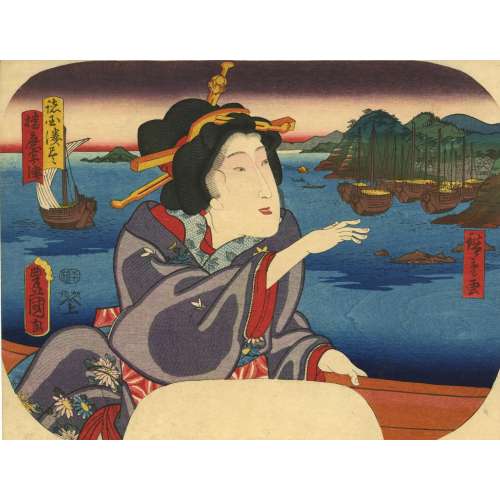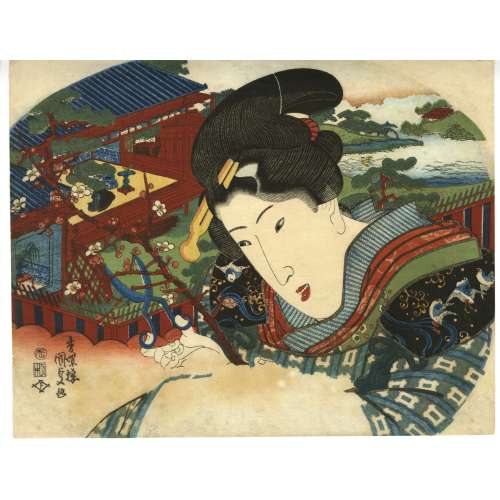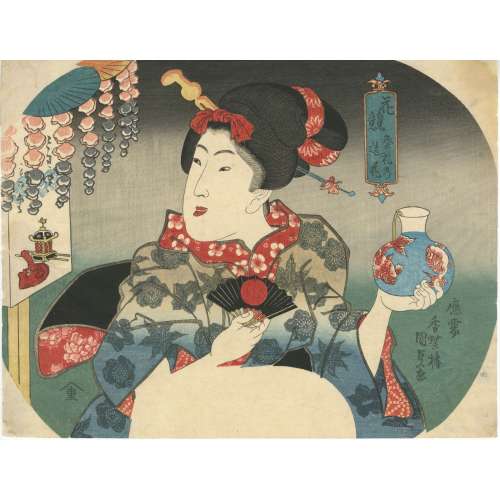Katsukawa Shunshō ( 勝川 春章; 1726 – 19 January 1793).
Signed: Shunchô ga (春潮画); Censor’s seal: kiwame (改印:極)
Publisher: Iwatoya Kisaburō (Eirindō); c. 1760s – 1832. Marks #173/p.169.
Reference: MFA ACCESSION NUMBER 11.21263. Not in Pins.
Act VII, Gion Ichiriki no ba (“The Ichiriki Teahouse at Gion“)
This act gives a taste of the bustling atmosphere of the Gion pleasure quarter in Kyoto. Yuranosuke is feigning a life of debauchery at the same teahouse to which Okaru has been indentured. Kudayū, the father of Sadakurō, arrives. He is now working for Moronō and his purpose is to discover whether Yuranosuke still plans revenge or not. He tests Yuranosuke’s resolve by offering him food on the anniversary of their lord’s death when he should be fasting. Yuranosuke is forced to accept. Yuranosuke’s sword – the revered symbol of a samurai – is also found to be covered in rust. It would appear that Yuranosuke has no thoughts of revenge. But still unsure, Kudayū hides under the veranda. Now believing himself alone, Yuranosuke begins to read a secret letter scroll about preparations for the vendetta. On a higher balcony Okaru comes out to cool herself in the evening breeze and, noticing Yuranosuke close by, she also reads the letter reflected in her mirror. As Yuranosuke unrolls the scroll, Kudayū, too, examines the end which trails below the veranda. Suddenly, one of Okaru’s hairpins drops to the floor and a shocked Yuranosuke quickly rolls up the scroll. Finding the end of the letter torn off, he realises that yet another person knows his secret and he must silence them both. Feigning merriment, he calls Okaru to come down and offers to buy out her contract. He goes off supposedly to fix the deal. Then Okaru’s brother Heiemon enters and, hearing what has just happened, realises that Yuranosuke actually intends to keep her quiet by killing her. He persuades Okaru to let him kill her instead so as to save their honour and she agrees. Overhearing everything, Yuranosuke is now convinced of the pair’s loyalty and stops them. He gives Okaru a sword and, guiding her hand, thrusts it through the floorboards to kill Kudayū.
The main actor has to convey a wide variety of emotions between a fallen, drunkard rōnin and someone who in reality is quite different since he is only faking his weakness. This is called hara-gei or “belly acting”, which means he has to perform from within to change characters. It is technically difficult to perform and takes a long time to learn, but once mastered the audience takes up on the actor’s emotion.
Emotions are also expressed through the colours of the costumes, a key element in kabuki. Gaudy and strong colours can convey foolish or joyful emotions, whereas severe or muted colours convey seriousness and focus.


